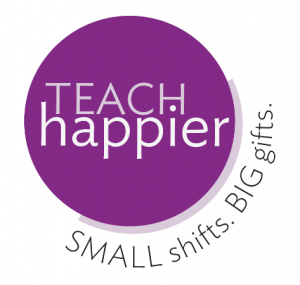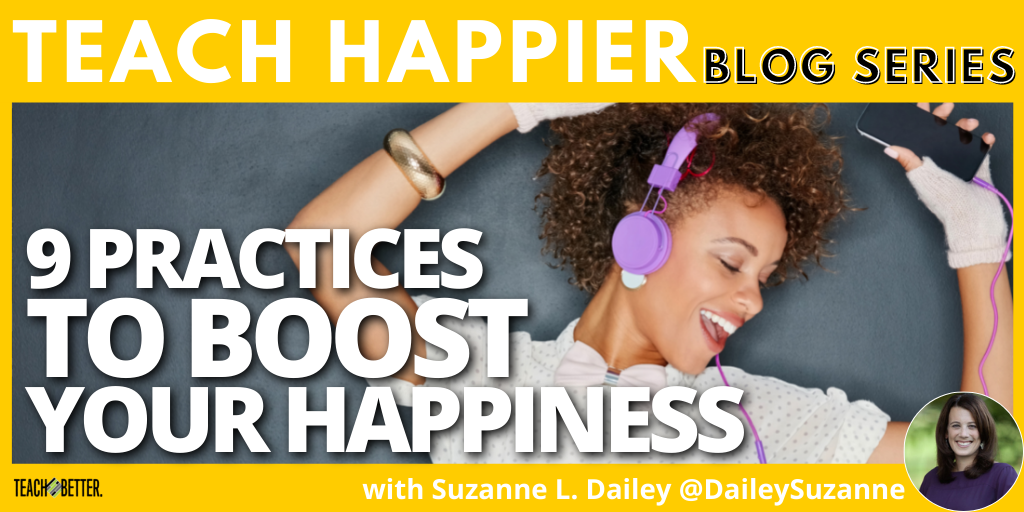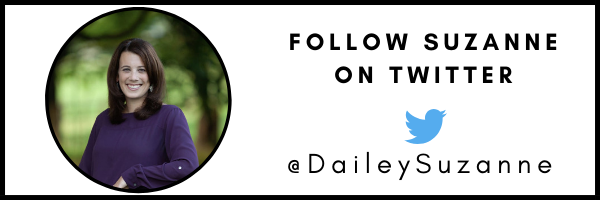TL;DR:
- Learn practices that experts have shown to positively impact happiness.
- Identify what additional practice brings you joy.
- Reevaluate your schedule to see how you can incorporate some of these healthy habits into your day.
How can we stay grounded?
Esther Perel, psychotherapist and New York Times bestselling author, posed a brilliant question: How can we stay grounded when the ground is moving? I have reread this question at least 20 times, and it had made me pause and think.
Boost Your Happiness: Listen to the Experts
Wouldn’t it be amazing if positive psychologists had a list of universal practices of happiness? Almost like a to-do checklist? Readers, I come with good news. Although there isn’t a specific list, I have been able to combine a list of tangible things multiple positive psychologists declare that we can do to increase our happiness both at work and at home. Some are super obvious, and some may require a little time to marinade.
As each universal practice of happiness is shared, consider what you are already doing on a daily basis, what you’re still developing, and which aren’t happening quite yet in your life. Then, you can prioritize a few things to nurture and develop. Here is our list of universal practices that increase happiness, in no particular order.
This just in: You can be a good person and still say no. Yep, it’s true. Prioritizing your time and space means that you are interacting with others, but you are still protecting the time you need to rest, recharge, and rejuvenate. Click To TweetBoost Your Happiness: Exercise
I know, I know. You are probably already rolling your eyes. I get it. Nobody will argue that there isn’t a direct relationship between physical wellbeing and emotional wellbeing. If you are feeling sad or tired, one of the best things we can do is lace up and get moving. Go for a walk and listen to your favorite music or podcast, search for an at-home workout, or get working in the yard. Not many people actually enjoy exercise, but nearly everyone enjoys how they feel afterward. If you are looking for a book that will teach you more about how physical movement positively impacts our emotional wellbeing, check out Spark by John Ratey. You’ll be lacing up in no time!
Boost Your Happiness: Look Forward to Something
When we have something to look forward to it is priming our brain toward positivity because when we look forward to something, it releases enhanced dopamine levels…immediately! In the article, “The Psychological Benefits of Having Something To Look Forward To,” author Kelsey Borresen says that this practice makes us feel more optimistic about our future, pleasantly distracting us from an undesired task, motivating us when we want to give up, and adding meaning to our lives.
Positive psychologists will invite us to have a list of moments we are looking forward to and have those short and long-term events accessible in your mind so you can recall them when you need to. The more you access these moments, this practice becomes easier and more automatic!
Boost Your Happiness: Perform Acts of Kindness
Brain scans will show us that the fastest way to increase our short-term happiness is by performing a conscious act of kindness. When we need to lift our spirits, the best thing we can do is actually lift someone else up. Moving away from the term random act of kindness and towards the term conscious act of kindness reminds us that this is something that is within our thoughtful control. We get to decide when we want to extend kindness and compassion towards others. And remember, humble voices travel father. The ultimate goal is to perform the conscious act of kindness and not tell anyone about it!
Boost Your Happiness: Meditate or Pray
Regardless of your spiritual or religious beliefs, positive psychologists overwhelmingly agree that sustained time in silence and reflection will positively impact our levels of happiness, balance, and contentment. Prioritizing time and space for stillness, quiet, and solace gives us the opportunity to slow down with our body, mind, and spirit. Like Pico Iyer says in The Art of Stillness, “It is only when we stop moving that we can be moved in some far deeper way… Getting still and going nowhere is the grand adventure that makes sense of everywhere else.”
Boost Your Happiness: Spend Money on Experiences, Not “Stuff”
Many of us continue to learn this as we continue to navigate life during a pandemic. As we have reevaluated and reprioritized elements of our lives, many of us have come to the simple conclusion that stuff doesn’t make us happy. Rather, spending time with people we care about or doing things that make us feel alive undoubtedly increases our levels of happiness and balance. As we begin to reenter the world with a renewed perspective, we understand that real-life experiences and interactions add meaning and value to our lives. Chances are if we can “add it to cart” it won’t provide authentic, long-lasting happiness like meaningful experiences can.
Boost Your Happiness: Connect with Others
Let’s consider how we prioritize and spend our time. Are we taking advantage of opportunities to connect with others? Positive psychologists agree that 100% of happy people have the same thing in common: strong social connections. If someone is good to you and for you, we should nurture those healthy relationships with our friends, partner, colleagues, and family.
Boost Your Happiness: Prioritize Time & Space
Since most of us in the Teach Better family are educators, it’s in our DNA to be helpers. We’re here to support, give, and nurture. It’s our greatest gift. But, it can also be our biggest weakness.
This just in: You can be a good person and still say no. Yep, it’s true. Prioritizing your time and space means that you are interacting with others, but you are still protecting the time you need to rest, recharge, and rejuvenate. Do you know what happens when we begin to say no to the things we really don’t want to do? It creates time and space for the things we love to do, which energizes our hearts, minds, and bodies. Here’s to saying yes to saying no!
[scroll down to keep reading]Boost Your Happiness: Gratitude
Positive psychologists overwhelmingly agree that the most impactful practice that will increase our baseline levels of happiness long-term is gratitude. Here’s how we can acknowledge and celebrate the abundance in our lives:
Recognize
Any single happy experience may be minimized or maximized depending on how much attention is focused on it. It’s really that simple. When something good happens today, recognize it.
Recall & Record
How can we give those positive moments more attention? We recall and record them! Grab a journal or use an app like Happyfeed© and record those happy moments. After you get into this habit, you will notice 2 profoundly impactful things — your brain is now more likely to “scan for the good” automatically, making your days happier. Once you recall and record them, you are reliving those moments and ending your day in a state of peace and positivity. Recalling them also increases the likelihood that your happy memory stays with you long-term.
YOUR Happiness Practice
Now that we have covered the list of universal practices of happiness, I would like to add one more and you get to define what it is. There is probably something ordinary you do each day that brings you great joy that you didn’t find on this list. Think through your day and if there is something that brings you great joy (for me it’s getting up before my family to enjoy a quiet cup of coffee or reading before I fall asleep each night). Make that thought part of your universal practices list.
***
How can we stay grounded when the ground is moving? Although there is no magic wand, this universal list of practices can be a start. Keep happy, Teach Better Family!

Small Shifts, Big Gifts!
What are you practicing daily? Which practices are still developing? What do you want to begin incorporating as you move through your days? Create a goal for yourself and see if adding some of these universal practices increase your happiness at work and at home.
About Suzanne Dailey
Suzanne Dailey is a proud member of the Teach Better Family! She is an instructional coach in the Central Bucks School District where she has the honor and joy of working with elementary teachers and students in 15 buildings. Suzanne is Nationally Board Certified, a Fellow of the National Writing Project, and has a master’s degree in Reading. She is dedicated to nurturing and developing the whole child and teacher. Suzanne lives in Doylestown, Pennsylvania with her husband and two children.




